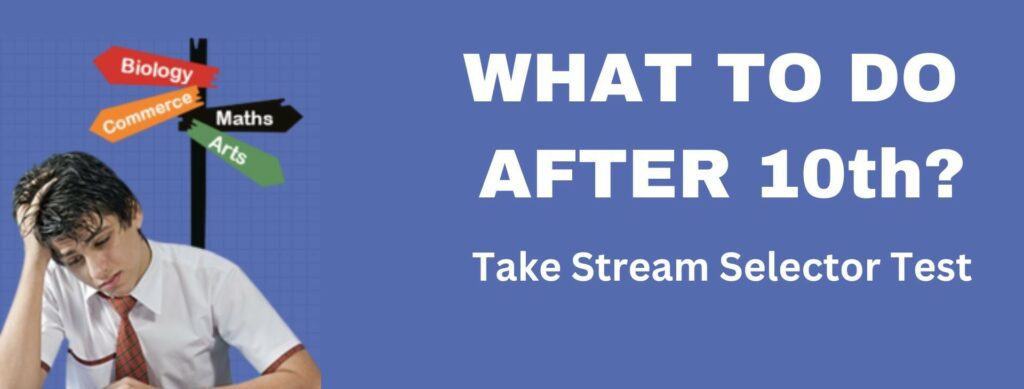What are the different types of doctors?There are many different types of doctors, including general practitioners, specialists, surgeons, pediatricians, gynecologists, neurologists, oncologists, cardiologists, dermatologists, and many others.What is the difference between an MD and a DO?MD stands for Doctor of Medicine, while DO stands for Doctor of Osteopathic Medicine. Both degrees allow the person to practice medicine and become licensed as a physician. However, DOs focus on a more holistic approach to healthcare, emphasizing the body’s ability to heal itself and placing more emphasis on preventive care. so Here are some FAQs for career in medicine for class 10th-part 2.
Know more about Stream & Career Clarity Service
Would Medicine Provide Me With A Good Living?
Medicine has many rewards-personally, intellectually, and financially. On average, doctors make about $160,000 a year in the US, but this amount can vary depending on where physicians live and what type of medical speciality they practice. As the American health care system changes, fewer doctors are working for themselves and mot are joining health care systems, often as salaried employees. In these organization: physicians can often command salaries comparable to executives in other occupationIn India, a young Doctor with MBBS plus MD/MS can earn a minimum of Rs. 5,00,000.00 annum and there is no upper limit.
Who Is A Primary Care Doctor? What Are Their Careers Like?
About one-third of the nation’s physicians are generalists-primary care doctors who provide lifelong medical services for you and all the members of your family. General Internists, family physicians, and general paediatricians are all considered generalist doctors. They are the first doctors you consult for medical care. And they are trained to provide a wide range of services children and adults need. When patients’ specific health needs require further treatment, generalist physicians send them to see a specialist physician.Specialist physicians differ from generalists in that they focus on treating a particular system or part of the body. Neurologists who study the brain, cardiologists who study the heart ophthalmologists who study the eye, and haematologists who study biology are just a few examples of specialists. They work together with generalist physicians to ensure that patients receive treatment for specific medical problems, as well as complete and comprehensive care throughout life.
MD Anaesthesiology MD Anatomy
MD Biochemistry
MD Community Medicine
MD Dermatology, Venereology & Leprosy MD Forensic Medicine
MD General Medicine
MD Hospital Administration MD Microbiology
MD Paediatrics MD Pathology
MD Pharmacology MD Physiology
MD Psychiatry MD Radio-diagnosis
MD Radiotherapy MS General
Surgery MS Ophthalmology
MS Obstetrics & Gynaecology
MS Orthopaedic Surgery
MS Otorhinolaryngology
What Are The Specialization Courses Available After MBBS?
How Can I Become A Homeopathic Doctor?
To have a career as Homeopathic Doctor, you have to complete the course BHMS. Bachelor of Homeo Medicine & Surgery (BHMS) is of 5 and half year’s duration including one-year compulsory internship. 10+2 or equivalent examination passed with Physics, Chemistry and Biology is essential eligibility for an aspirant. Admission is either based on marks in the qualifying examination or through a competitive entrance examination.
How Can I Become An Ayurvedic Doctor?
To have a career as an Ayurvedic Doctor, you have to complete the course BAMS. Bachelor of Ayurvedic Medicine & Surgery (BAMS) is of 5 and half year’s duration including internship. 10-2 or equivalent examination passed with Physics, Chemistry and Biology is essential eligibility for an aspirant. Admission is either based on marks in the qualifying examination or through a competitive entrance examination.
How Can I Become An Unani Doctor?
To have a career as an Utiani Doctor, you have to complete the course BUMS. Bachelor of Unani Medicine & Surgery (BUMS) is of 5 and half year’s duration including internship of 1 year.10+2 or equivalent examination passed with Physics, Chemistry and Biology is essential eligibility for an aspirant. Admission is either based on marks in the qualifying examination or through a competitive entrance examination. BUMS is offered in almost 25 colleges in the country. Some other courses such as ‘Kamil-E-Tibb-0-Jarahat and Mahir-E-Tibb’ etc., equivalent to BUMS are also in trend. Doctors trained in Unni Medicine are placed in Unani Medical Colleges and hospitalsAfter post-graduation, teaching and research are also good options. The Central Council for Research in Unani Medicine is an autonomous organization of the Ministry of Health and Family Welfare, Government of India. The Council is engaged in multifaceted research activities in the field of Unani Medicine. The areas chosen for research include clinical research. drug research, literary research. survey and cultivation of medicinal plants, and family welfare research program. The Council is 100% financed by the Government of India through the Union Ministry of Health & Family Welfare,
STREAM SELECTOR™ TEST
The STREAM SELECTOR™ TEST is an assessment tool used to help students in India determine their ideal academic stream (or “stream of study”) for classes 11 and 12 based on their interests, skills, and abilities. The acronym STREAM stands for Science, Technology, Engineering, Arts, and Mathematics, which are the five main streams of study available to students in India after class 10. The STREAM SELECTOR™ TEST is designed to help students make an informed decision about which stream to choose, taking into account their personal strengths and preferences. The assessment typically involves a series of questions and exercises designed to evaluate the student’s abilities and interests in different subject areas, as well as their career goals and aspirations. The test is commonly administered by career guidance counselors or educational institutions in India, and is often available online as well. By taking the STREAM SELECTOR™ TEST, students can gain insights into their own strengths and interests, and make more informed decisions about their academic and career paths.
What is the stream selector test by CareerGuide?
The stream selector test by CareerGuide is an online aptitude test designed to helping and useful tips for 10th class study students and make 10th class study time table for identify the most suitable stream for their higher studies. The test assesses a student’s interests, personality traits, and academic strengths and weaknesses to recommend the most appropriate stream.
Is the stream selector test by CareerGuide reliable?
The stream selector test by CareerGuide is based on a scientifically validated methodology and has been developed by a team of experts with years of experience in career guidance. The test is designed to assess a student’s interests, personality traits, and academic strengths and weaknesses, and has been used by thousands of students to make informed career choices.
How can I interpret the results of the stream selector test by CareerGuide?
The report generated by the stream selector test by CareerGuide provides a detailed 10th class study time table analysis of your interests, personality traits, and academic strengths and weaknesses, along with recommendations for the most suitable stream and make 10th class study time table. It is important to review the report carefully and seek guidance from a career counselor if needed to make an informed decision.













